#walter kaufmann
Text
That […] mixture of sensuality and cruelty which has always seemed to me to be the real “witches’ brew.”
— Friedrich Nietzsche, The Medusa Reader, transl by Walter Kaufmann, (2013)
82 notes
·
View notes
Text
still can’t believe she covered the AIR theme, which by the way was written by a European Jewish man (who was related by marriage to Kafka):
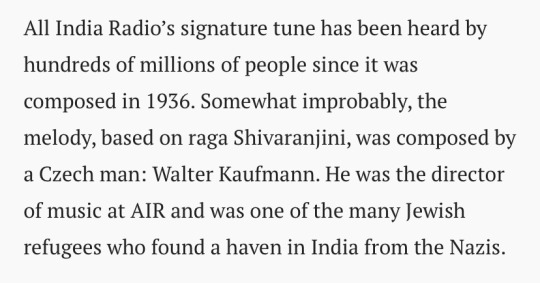
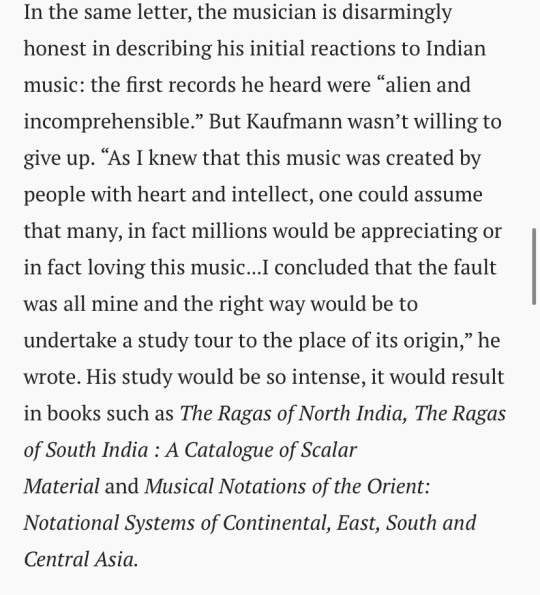
[link to article]
[link to Carla Bley’s piece on youtube]
56 notes
·
View notes
Text
It is not enough to know the language; one must also acquire some feeling for an author.
Walter Kaufmann, Genealogy Of Morals; Editor’s Introduction.
#philosophy tumblr#philoblr#German American philosophy#philosopher#authorships#editor in chief#Walter kaufmann#books and reading#dark academia#passion#dionysian#life quotes
20 notes
·
View notes
Text
youtube
TODAY IN PHILOSOPHY OF HISTORY
Hegel on the Journey of Spirit to Self-Understanding
Tuesday 27 August 2024 is the 254th anniversary of the birth of Georg Wilhelm Friedrich Hegel (27 August 1770 – 14 November 1831), who was born in Stuttgart on this date in 1770.
It is unlikely that anyone would call Hegel’s philosophy of history an Enlightenment philosophy of history, but there is a sense in which Hegel is the culmination of an especially fertile period in the philosophy of history that preceded him. Hegel transcended these Enlightenment philosophies of history in a supremely abstract way of understanding history and the developments it unfolds.
Quora: https://philosophyofhistory.quora.com/
Discord: https://discord.gg/r3dudQvGxD
Links: https://jnnielsen.carrd.co/
Newsletter: http://eepurl.com/dMh0_-/
Text post: https://geopolicraticus.substack.com/p/hegel-on-the-journey-of-spirit-to
Video: https://youtu.be/kPIcS2x51tE
Podcast: https://spotifyanchor-web.app.link/e/hEhcN4j0pMb
#philosophy of history#youtube#G. W. F. Hegel#Hegel#Walter Kaufmann#William Barrett#Bertrand Russell#Sidney Hook#Thomas Carlyle#Napoleon#Dasein#spirit#hero#Youtube
2 notes
·
View notes
Text

#existentialism and you#existentialism#jean paul sartre#fyodor dostoevsky#walter kaufmann#dark acadamia aesthetic#conversechucktaylor#dark acamedia#grunge meets academia#academia lucifer#wanderer#driving alone at night
2 notes
·
View notes
Text
The question is how we use language - to vivisect experience, killing it for the sake of generalized knowledge, or to capture experience alive. The scientist does the former, the poet the latter, and the philosopher must often try to do both and capture the experience before analyzing it. At its best, philosophy does not live in the shadow of either science or poetry: it offers something compared to which both science and poetry are restricted in scope.
Walter Kaufmann, Critique of Religion and Philosophy
9 notes
·
View notes
Photo

Walter Kaufmann, from “Art, Tradition, and Truth”
2 notes
·
View notes
Quote
What does the great poet do? I have rejected the traditionalists’ account of the relation of poetry to tradition, reality, and truth: they fail to recognize the essential autonomy of poetry that subverts stereotypes hallowed by tradition, changes our perception of reality, and makes accepted truths questionable by making us aware of the concrete meanings of ideas.
The poet does not imitate reality. This Greek conception, which was originally suggested by epic and dramatic poetry, does not do justice to Homer and Sophocles any more than to Shakespeare. The great poet is the enemy of our everyday reality: he makes that which we have seen with our own eyes appear as a mere shadow of that reality which we encounter in Oedipus, Lear, or The Brothers Karamazov. He shows us that we live blindly on the surface and says in Rilke’s words: “you must change your life.”
In drama and epic, novel and lyrical poem, the poet records individual experiences in their unmitigated subjectivity and thus expands our subjectivity and cracks our horizons.
Walter Kaufmann, from ‘13. Art, Tradition, and Truth: 7′ in From Shakespeare to Existentialism.
5 notes
·
View notes
Text
He came, he saw, he composed an unforgettable tune, and he left
He came, he saw, he composed an unforgettable tune, and he left
The song Janaki Jaane, from the 1988 Malayalam movie, Dhwani, was composed and written by two gentlemen of Muslim faith, sung by a Christian, and is about Lord Rama. The lyrics are so endearing and beautifully written in Sanskrit, and it goes like this:
During our suffering, you are our only friend,Only you can end our fearTo cross to the ocean of samsara, you are the only boatO Lord Rama, the…
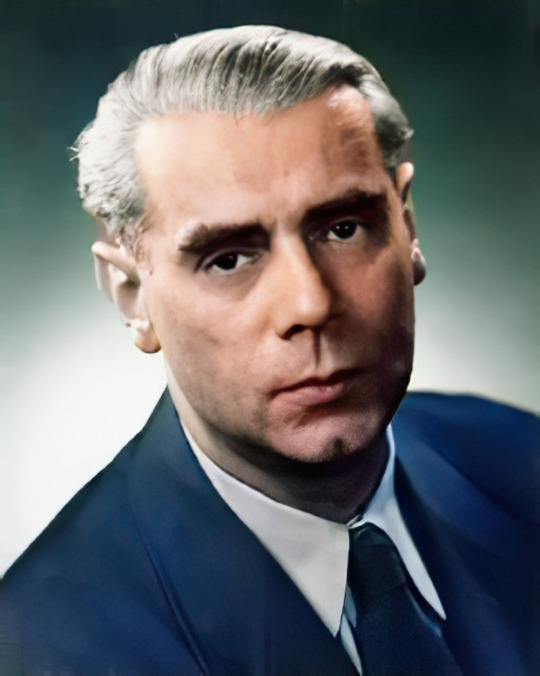
View On WordPress
0 notes
Text




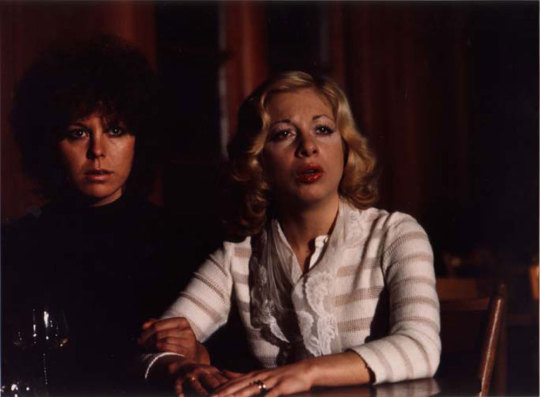
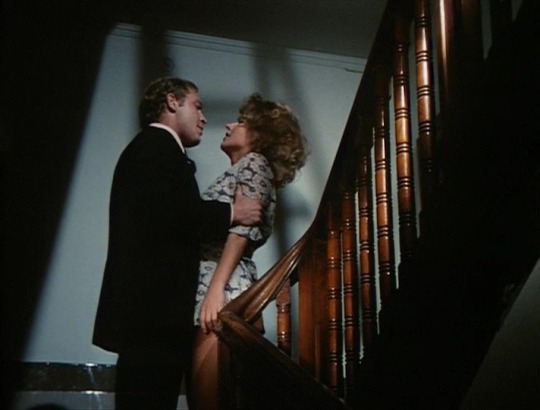
Pioneers in Ingolstadt (Pioniere in Ingolstadt) (1971) Rainer Werner Fassbinder
January 25th 2024
#pioneers in ingolstadt#Pioniere in Ingolstadt#1971#rainer werner fassbinder#hanna schygulla#Harry Baer#irm hermann#Rudolf Waldemar Brem#Klaus Löwitsch#Walter Sedlmayr#Carla Egerer#Günther Kaufmann#recruits in ingolstadt
0 notes
Text

Did they not have atheism in the 1930s
1 note
·
View note
Text

The Birdcage (1996) by Mike Nichols
Book title: Nietzsche: Philosopher, Psychologist, Antichrist (1950) by Walter Kaufmann
#francesca cruz#the birdcage#mike nichols#books in movies#nietzsche philosopher psychologist antichrist
51 notes
·
View notes
Text
The Top 40 Most Popular Operas, Part 1 (#1 through #10)
A quick guide for newcomers to the genre, with links to online video recordings of complete performances with English subtitles.
Mozart's Die Zauberflöte (The Magic Flute) (Wolfgang Amadeus Mozart)
The most frequently performed opera worldwide: Mozart's fascinating, philosophical fairy tale opera, which appeals to both children and adults.
San Francisco Opera, 2010 (Piotr Beczala, Dina Kuznetsoca, Christopher Maltman, Erika Miklosa, Georg Zeppenfeld; conducted by Donald Runnicles)
Verdi's La Traviata
Tragic romance with social commentary, based on Alexandre Dumas fils' novel The Lady of the Camellias, which was also the basis for the classic 1936 Greta Garbo film Camille.
Los Angeles Opera, 2006 (Renée Fleming, Rolando Villazon, Renato Bruson; conducted by James Conlon)
Bizet's Carmen
The fiery tragedy of a seductive, free-spirited Spanish Romani woman and her loves, with some of opera's most iconic music.
Royal Opera House, Covent Garden, 2006 (Anna Caterina Antonacci, Jonas Kaufmann, Ildebrando d'Arcancelo, Norah Ansellem; conducted by Antonio Pappano)
Puccini's La Bohéme
Relatable slice-of-life romance that blends comedy and tragedy. The inspiration for the popular musical RENT.
Studio film, 1965 (Mirella Freni, Gianni Raimondi, Rolando Panerai, Adriana Martino; conducted by Herbert von Karajan)
Mozart's Le Nozze di Figaro (The Marriage of Figaro)
The best loved of Mozart's Italian operas, a great comedy of class conflict and sexual intrigue.
Glyndebourne Festival Opera, 1994 (Gerald Finley, Alison Hagley, Renée Fleming, Andreas Schmidt, Marie-Ange Todorovich; conducted by Bernard Haitink)
Puccini's Tosca
Political intrigue, lust, and bloodshed amid the splendor of Rome – some call it a "shabby little shocker," others call it thrilling.
Vienna State Opera, 2019 (Sondra Radvanovsky, Piotr Beczala, Thomas Hampson; conducted by Marco Armiliato)
Mozart's Don Giovanni
Arguably the greatest retelling of the legend of Don Juan, with comedy, drama, and Mozart's glorious music.
Salzburg Festival, 1954 (Cesare Siepi, Otto Edelmann, Elisabeth Grümmer, Anton Dermota, Lisa della Casa, Erna Berger, Walter Berry Deszö Ernster; conducted by Wilhelm Furtwängler)
Puccini's Madama Butterfly
Puccini's iconic "Japanese tragedy." Controversial from a racial standpoint, but a tearjerker nonetheless, and the inspiration for the musical Miss Saigon.
Feature film, 1995 (Ying Huang, Richard Troxell, Ning Liang, Richard Cowan; conducted by James Conlon)
Rossini's Il Barbiere di Siviglia (The Barber of Seville)
The lighter and more madcap prequel to The Marriage of Figaro, known as the quintessential comic opera.
Vienna State Opera, 2019 (Rafael Fingerlos, Juan Diego Flórez, Margarita Gritskova, Paolo Rumetz, Sorin Coliban; conducted by Evelino Pidò)
Verdi's Rigoletto
A richly melodic tragedy of a hunchbacked jester, his daughter, a lecherous duke, and a self-fulfilling curse.
Studio film, 1982 (Ingvar Wixell, Luciano Pavarotti, Edita Gruberova; conducted by Riccardo Chailly)
#opera#top 40#part 1#top 10#video#complete performances#english subtitles#die zauberflöte#the magic flute#la traviata#carmen#la boheme#le nozze di figaro#the marriage of figaro#tosca#don giovanni#madama butterfly#il barbiere di siviglia#the barber of seville#rigoletto
121 notes
·
View notes
Text
I tell you: one must still have chaos in oneself, to give birth to a dancing star.
— Friedrich Nietzsche, “Last Man” in The Portable Nietzsche. Walter Kaufmann, Translator. (Penguin, 1982)
22 notes
·
View notes
Text
I just read "Beyond Good and Evil" and Walter Kaufmann's big book on Nietzsche, and I thought, you know, transgender ideology and expression might well be understood as an expression of Nietzsche's idea of the will to power. Then, I wondered if anybody else has had that thought and decided to Google it.
Unfortunately I forgot that "trans issues" and "Nietzsche's philosophy" are neck and neck when it comes to attracting the stupidest fucking opinions in the world, so I just made myself angry.
Anyway, I suspect that "gender euphoria" might, in many (most? All?) cases, be a euphoria at the expression of power, specifically the power to have other people validate your own self-image.
And I guess also that right-wing anti-trans initiatives make very little sense if we take them at face value as worries about people being "rushed" into treatment, but do make sense as attempts to quash that power in both children and adults. In particular, say, those Florida guidelines recommending against social transition for... Basically no given reason at all, even though by definition it doesn't involve any medical intervention and seems like a perfectly fine way to ease into this experience rather than rushing into medical intervention.
46 notes
·
View notes
Note
Hello again bright creature 🪔
A bit late to the ask but very curious about 11 & 23!
angel!!!
11. 3 books that you would recommend everyone to read
some more!! i and thou by martin buber (walter kaufmann translation), second-hand time by svetlana alexievich, a moth to a flame by stig dagerman
(answered 23, adore u!!!!)
28 notes
·
View notes